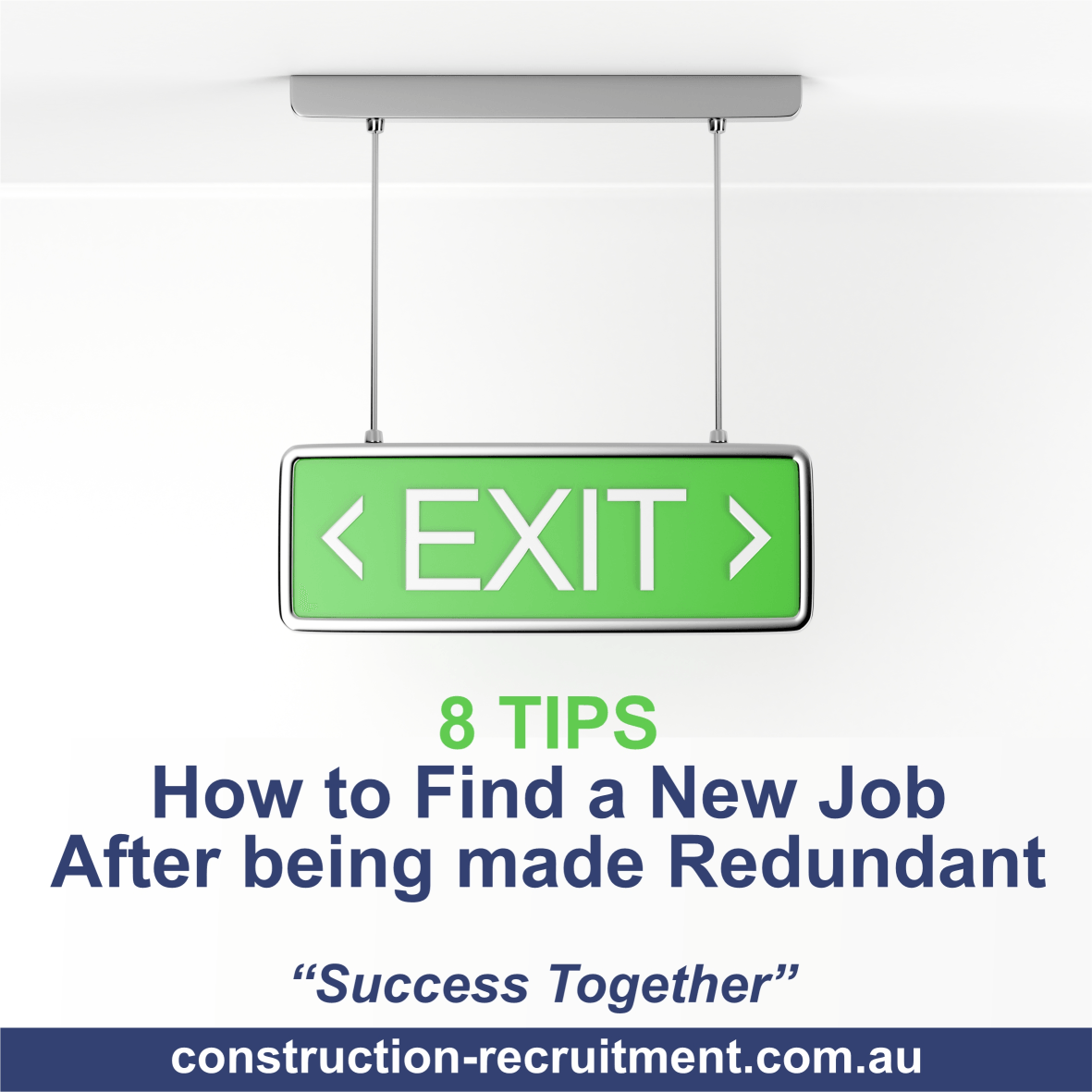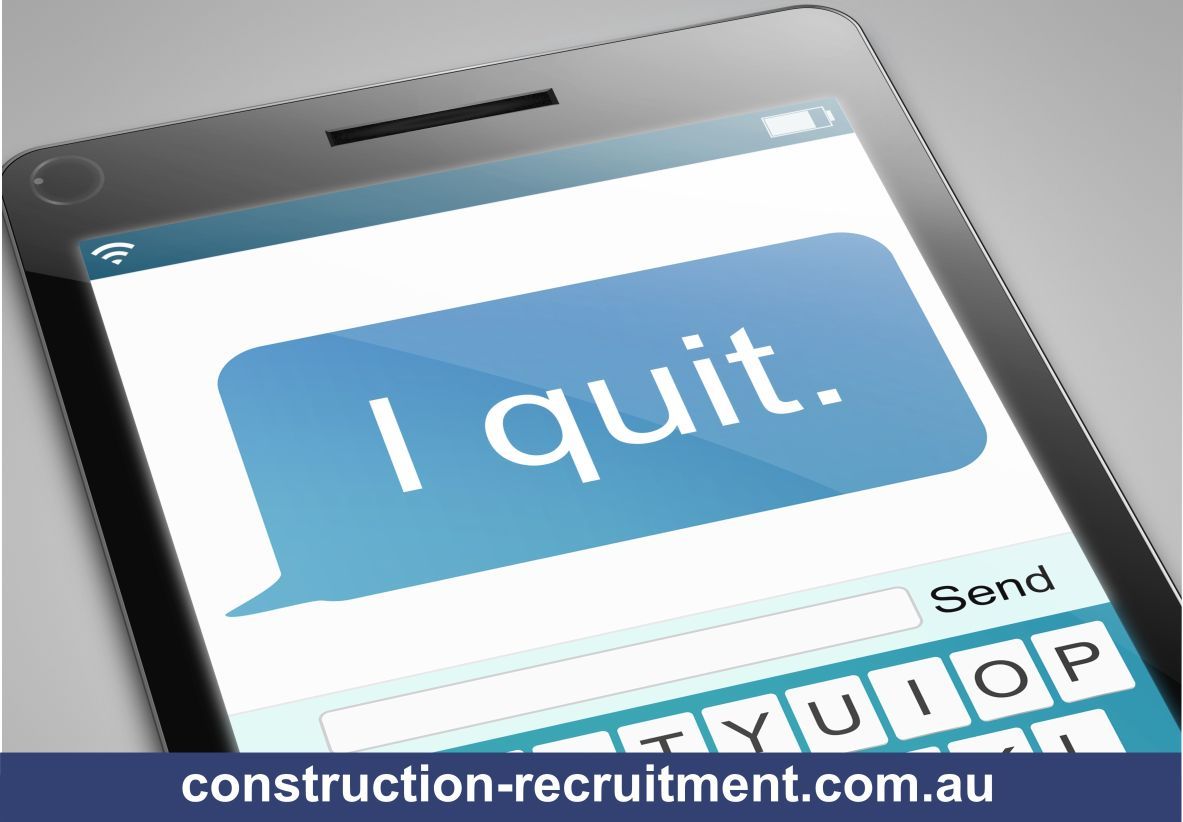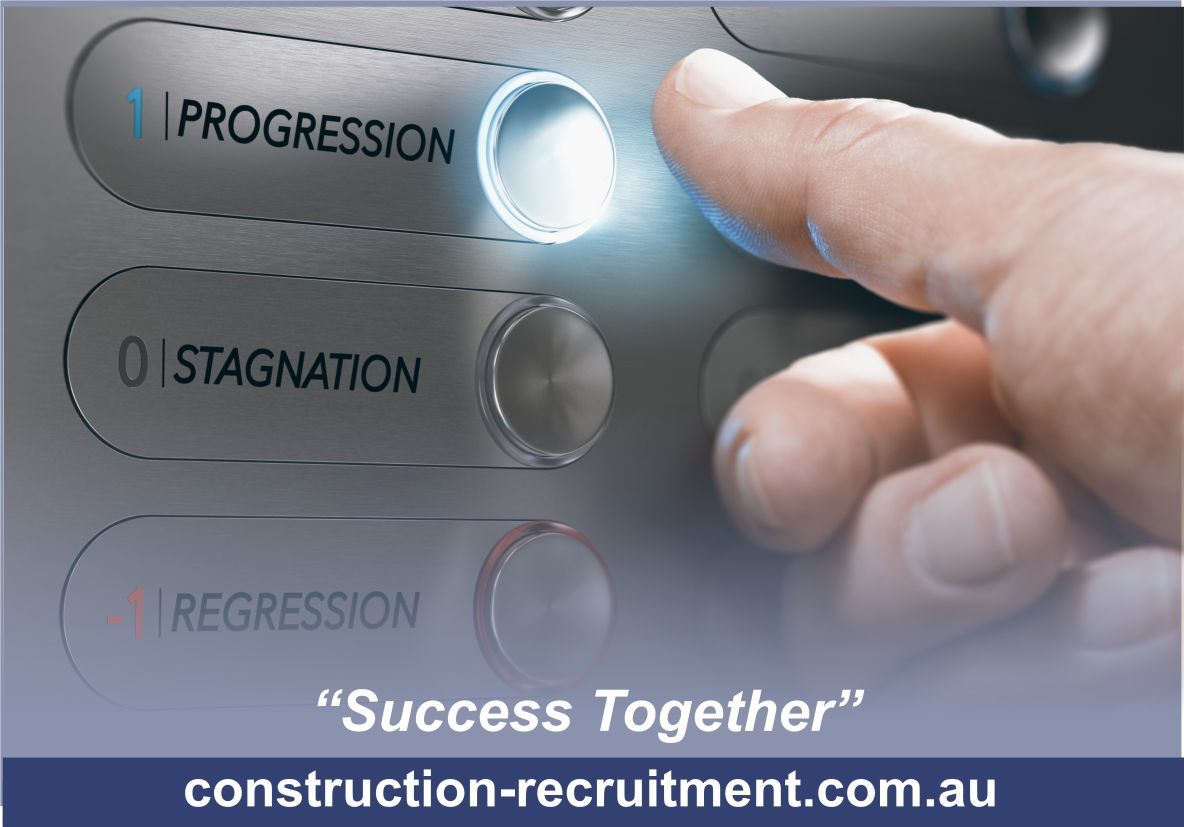How To Find A New Job After Being Made Redundant
8 Tips To Getting The Best Out Of This Situation

You haven't been made redundant. Your job has. It's essential to understand the semantics here.
Whilst this is an unfortunate situation, it's not your fault - and often, it is precisely these situations that can lead to something much better! Just like running late and missing the train, only to bump into an old employee, you haven't seen for years that was fantastic, and they become part of your team – that kind of silver lining.
Although, it is also normal to feel stressed and out of sorts if you find yourself in this situation. It's worth taking a moment to see if this is also a silver lining moment. Is this an opportunity to regroup, think about what is important to you in your career and what you want in your next role, and then plan your next step?
We've put together 8 Tips to help you make the best out of this situation:
1. Review and Reset
2. Exit Respectfully
3. Turn 'down-time' into 'up-time'
4. Set yourself up for success with a career plan
5. Widen Your Horizons
6. Network, network, network
7. Submitting a job application after redundancy
8. Attending job interviews after redundancy
1. Review and Reset
See redundancy as an opportunity to review what you want to do, and what you don't want to do, with your life. While it almost certainly won't feel like it at the time, redundancy can end up with a good outcome. It's like they say, good things never come from comfort zones.
"Identify your problems, but give your power and energy to solutions" – Tony Robbins
It will seem daunting after being dealt the blow of being made redundant, but it could prove to be a life-changing move that opens new doors for your career that you hadn't previously considered.
2. Exit Respectfully
Yes, redundancy can be significant disruption and disappointment. After a few deep breaths, consider speaking to your old employer and asking them to act as a reference for any applications you make. You may feel bitter and disappointed about the situation. Still, it is essential to remember that economies change, receiverships happen, takeovers are part of the course, and redundancies happen, which was not a personal decision.
"Disappointment is just the chance to start once more, this time all the more insightfully" – Henry Ford
Make sure you leave on good terms and represent yourself as a true professional. You never know, an opportunity may arise in the near future, and if you behaved respectfully throughout the redundancy process, they might well consider you above any other applicants.
3. Turn 'down-time' into 'up-time'
It is never too late to start fresh.
This may be the first time in years that you have had a period of time available to you. Be proactive and productive with your time. Don't consider it 'down-time' but turn around the opportunity to 'up-time'. Upskilling, that is. Dedicate your time and attention to teaching yourself additional skills that will increase your attraction to potential employers – whether your technical, management or interpersonal skills. This is invaluable.
"Developing inner values is much like physical exercise. The more we train our abilities, the stronger they become. The difference is that, unlike the body, when it comes to training the mind, there is no limit to how far we can go" – Dalai Lama
Potential employers will value those that demonstrate a can-do attitude, an interest in improving themselves or their skillset and the capacity to learn. It indicates that you are committed to continually developing with the inevitable changes in any role if they hire you. You show that you will be a valuable asset to them.
4. Set yourself up for success with a career plan
If you decide that you're happy with your career direction and want to stay in a similar line of work, you need to be prepared to throw yourself proactively into your job search, as if it is your full-time job. In any job market, success, more often than not, comes down to your effort and being disciplined in your approach.
"The only way to do great work is to love what you do" – Steve Jobs
Having a consistent routine gives some much-needed structure to your day. Try to create a clear and quiet work environment, setting yourself daily and weekly goals that bring variety and motivate you. A good starting point in your job search is to answer the following:
Which recruiter will you work with?
- Do you understand the current job market and job descriptions for your role that matches your skills and interest?
- What aspects of a role do you want (and those you don't) and categorise them as 'must have' or 'would be nice to have'?
- Could you develop yourself to be a suitable candidate for jobs that have specific criteria, but you don't match exactly – can you demonstrate similar criteria and the ability to develop those;
- Are your expectations of the employer clear;
- Who will you research today that you want to work with;
- How many applications are you going to make this week?
- Can you follow up on any past conversations you've had?
5. Widen Your Horizons
This is your opportunity to evaluate your short and long term career goals. If you focus solely on vacancies directly related to your skills, you may miss out on wider options. Think outside the box and look into new sectors to see what suits you best.
"Have the courage to follow your heart and your intuition" – Steve Jobs
If you decide to be more flexible in terms of your options, you may need to research and manage your remuneration expectations. This is a significant consideration and something that you should weigh up appropriately. It may have broader implications on your lifestyle and family if you have one to support.
6. Network, network, network
You may feel alone, and there is an element of looking after yourself and coming to terms with your situation, but there are plenty of people out there who will support you. Remember: If you ever feel like your state of mental health is slipping, and you are struggling with the isolation of redundancy, support and advice is available. Don't be afraid to reach out to one of the national health organisations for expert advice and resources.
"Getting around the right people is the biggest success hack in the world" – Jim Rohn
This period of redundancy might be the right time to call in a few favours from contacts you have interacted with throughout your career. That also includes reaching out to recruitment consultants or industry professionals who have an extensive network and can be a great help in your job search. Be respectful in your approach, and mention that you are on the market. A good recruiter who represents clients well will actively work for you, and a colleague may be aware of something you could pursue, either with them or someone else.
This is also an important time to update your LinkedIn page, adjusting your contact settings so that your profile is fully visible to people you aren't connected with. You can even change your job title to say something along the lines of 'Looking for a new opportunity - this will instantly identify you as an available candidate to any recruiters or hiring managers.
If you have knowledge you would like to share, why not research and write an article to share on LinkedIn about topics for your profession. Even if your writing skills are not 100%, but the ideas are yours, you can get professional help to polish the article. This will get your profile out there more and give you a point of difference when you get interviewed.
7. Submitting a job application after redundancy
Likely, you haven't submitted a job application for a while. During that time, you will have developed as a professional and will have new skills and responsibilities that should be included in your resume.
"If you get up in the morning and think the future is going to be better, it is a bright day. Otherwise, it's not" – Elon Musk
An excellent approach to take when polishing up your resume is to customise it for every application you make, accurately identifying the most relevant experience you can offer that specific organisation. This doesn't mean you need to create an entirely new resume for every job application, but you should have slightly altered versions and apply for each role as if it is the only job you are going after.
In reality, you will be making multiple applications. There are a few essential considerations to keep in mind to avoid running yourself into trouble that is standard with job applications today (of course, you could partner with a recruiter that would make this process seamless):-
- In your covering letter (if required), focus on why you are interested in the role, what you are looking for and why you have identified that organisation as the one to work with. Don't write too much about your skills and experience – your resume should cover that;
- Monitor and keep a record of the organisation and vacancy you apply to. If you unknowingly apply for the same job across multiple platforms, the prospective employer may question your memory or attention to detail;
- Personalise who you address the application to and do some research if necessary. Avoid 'To whom it may concern' where possible, as that can be seen as impersonal and doesn't demonstrate initiative on your part;
- Follow up if you haven't heard back, but be careful in your wording. You want to be seen as keen, not pushy;
- Develop a strategy to keep your spirits up. Not every application will be successful, particularly in a competitive job market. Find a way to deal with rejection, and keep yourself motivated in your job search. You are worth it, and your hard work will be rewarded!
This is an exciting, and can be, nerve-racking time, mainly if it is the first interaction you've had with a prospective employer since you were made redundant. Try not to let that play on your mind.
Treat the interview like any other interview you have had. Go in fully prepared, have a selection of questions ready to ask related to the role and the organisation, and closeout by asking what the next stages of the selection process are.
Keep the discussion upbeat, and be prepared if they ask you why you left your previous job. Say it confidently and turn it into a positive conversation about what you want to achieve from your career going forward; why this particular role with the company (be specific) is attractive to you, and what you can bring to them moving forward
Get in touch if your next step on your search is to partner with a specialist recruiter in your space. Contact us today.
RELATED POSTS
In the News – Probuild Receivership and Redundancies
Create an Engaging LinkedIn Profile for Your Job Search
Your Success: Working with Specialist Industry Recruiters
CONNECT with us via our contact page or booking links on our website if you are looking to recruit for or land the ideal construction job in 2022.
#constructionrecruitment #construction-recruitment #successtogether #constructionjobsbrisbane #top20recruiters #redundancy










